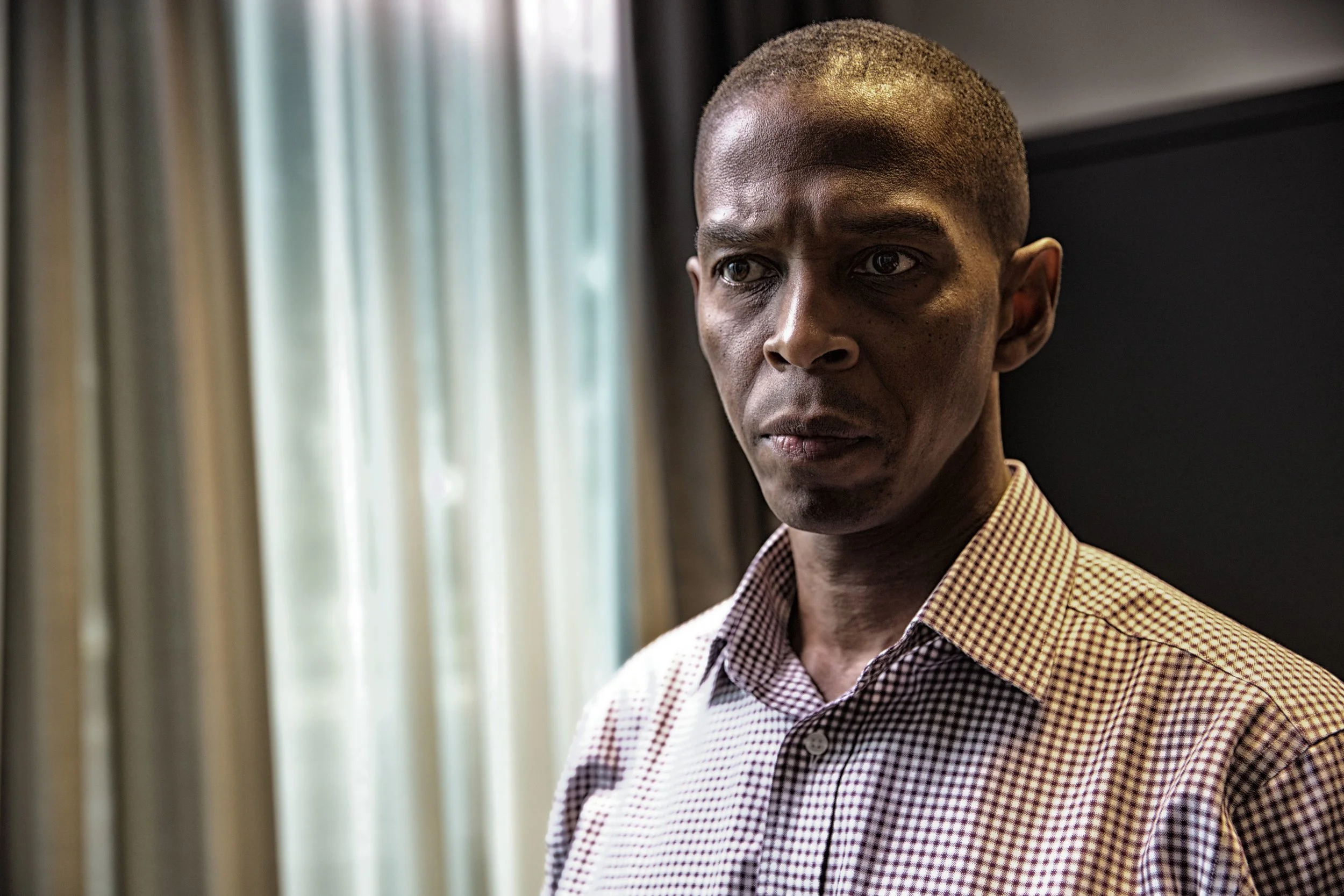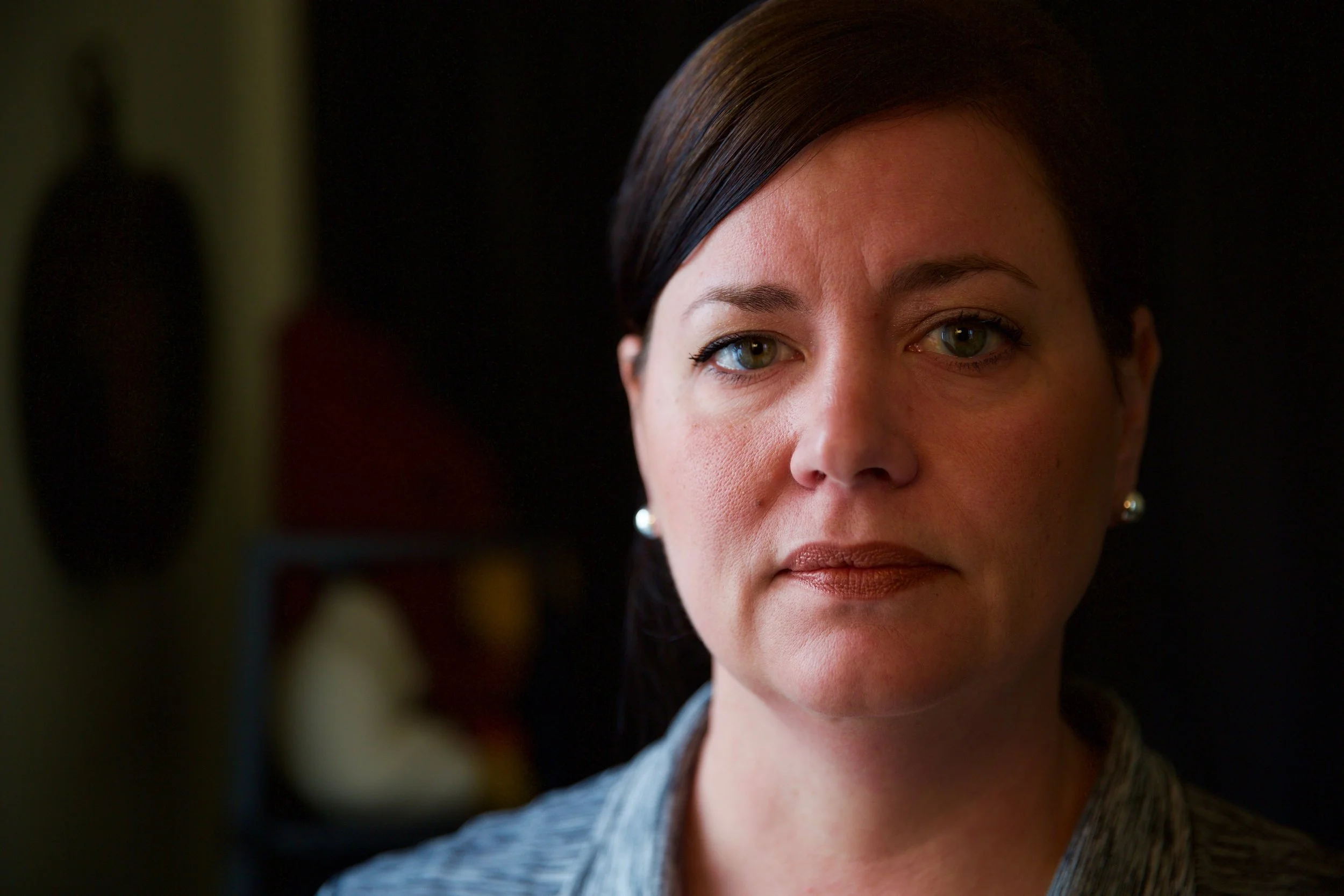Richmond Justice
STORIES + PORTRAITS
Harold | April 1, 2016
Harold Clarke has served as the Director of the Virginia Department of Corrections since 2010. He previously led the Departments of Corrections in Nebraska, Washington, and Massachusetts.
I studied psychology and sociology during college in Nebraska, and after graduating planned to spend eighteen months getting work experience before going back to the Caribbean. My family is from Jamaica, and I was raised in the Canal Zone in Panama. I began working as a counselor at the Nebraska Men's Reformatory, a branch of the State Penitentiary in Lincoln, on July 5, 1974. I discovered I liked working on reentry—helping people to get on the right track, develop work plans, and find jobs. Eighteen months has turned into almost forty-two years. I’m still getting that practical work experience, and I’m still having fun.
I was working in Massachusetts when I heard Bob McDonnell talking about reentry during his campaign for governor of Virginia. I was impressed; reentry isn't an issue that most politicians touch, especially when running for office. McDonell won that election and not long after I applied for the job of director. The rest is history, I guess.
When I arrived, Virginia was doing an outstanding job of exerting command and control during the supervision of inmates. But the Commonwealth needed to do more on reentry. We’ve been working extensively over the last five and a half years to change the culture of the Department of Corrections to embrace reentry. Effective reentry creates lasting public safety, as opposed to the temporary public safety that comes with incarceration. Ninety percent of our inmates are going home some day, so we have to help them to address their deficits. By creating a healing environment that facilitates learning, we help offenders make better decisions.
That includes working to improve our highest-security institutions, Red Onion State Prison and Wallens Ridge State Prison. We have offenders there in intensive management segregation; that means they are locked down twenty-three hours a day and allowed out of their cells one hour a day. Five years ago, there were no educational programs out there. But like offenders incarcerated elsewhere in Virginia, most of those at Red Onion and Wallens Ridge will go home one day. I looked at that and the lack of educational programs and said, “That doesn’t make sense. We’re not building lasting public safety. Even though they’re the worst of the worst inmates in our system, we have to try to reach them.”
“Effective reentry creates lasting public safety.”
In 2010, we began implementing a step-down program. If an offender demonstrates good behavior, he has the opportunity to step-down to lower levels of security. We built a school out there and started offering programs. We went from 511 individuals in intensive management segregation in 2010 to 160 today. Only thirteen of the inmates who have stepped-down in the last five years have done anything to revert back. We are seeing fewer grievances and fewer assaults, so it’s better for the offenders, better for the staff, and better for public safety.
Red Onion and Wallens Ridge are located in southwest Virginia, hours away from where most of our offenders come from. The problem is that prisons, to a large extent, have become economic development projects—a way of infusing resources into mostly rural communities. And you have an imbalance in those communities in terms of distribution of races. We’re not going to go and make wholesale changes, close doors, and say, “It’s done.” That’s not practical and it’s not doable. We have to work with what we have. We have to be able to impact the culture. Sometimes you have to move staff across the state to get the right balance in facilities. I have moved black wardens from the Richmond area and Tidewater to Wallens Ridge and Red Onion. I have a black warden out there, and other black staff and Hispanic staff. We do a lot of auditing and a lot of rotating staff in and out of the prisons—and that’s important. The day that traffic stops is the day that you lose contact. It’s the day accountability goes out the window. And it’s the day that you start relying on your biases and basic instincts, and then bad things can happen.
Virginia is tougher than many states in terms of sentencing. In many other states, 95-96% of inmates will go home one day. In Virginia, it’s 90%. People get hefty sentences. They’re not going home; a Virginia prison becomes their home. That creates a challenge as those people age, because it becomes costly to care for them and their medical issues. We have a facility in Deerfield that is basically a nursing home. There are about 1,000 offenders, and we have people who are bedridden. If you visit that institution today, you’d swear you were in a nursing home or hospital. They have long sentences, and the public doesn’t want them out.
We know quite well that not everyone sees the world in the way we do. Not everyone pauses to consider that these people are coming home, and so we need to offer them programs and training. Some folks want to lock them up and throw away the key. Well, we can’t do that. Fortunately, most legislators have been very supportive of our reentry initiatives. This year, we made requests to the legislature for funds for various needs, including repairing major structural problems at our facilities, and received much of the support we were hoping for.
There are misconceptions about the Department of Corrections on both ends of the spectrum. Some folks think we are too liberal and we’re coddling inmates. Some folks think that we have what was once described to me as a “plantation mentality.” What that is, I’m not quite sure; it was never fully explained. The truth lies somewhere in the middle.
We have to keep introducing ourselves to the public. We recently announced that Virginia prisons will offer accredited college courses. Some people will like that and some people will not, even though every educational program we offer beyond high school is fully funded by foundation grants—not by state dollars. Still, some folks will say, “Why are they getting an education?” The data tell us that a GED helps offenders to not recidivate, and an advanced degree helps them even more so. That creates lasting public safety. We may have an individual who says, “My loved one can’t afford an education, and they committed no crime. So why should criminals get a free education?” My response to that is, “I’m not responsible for your loved one. That’s somebody’s responsibility to figure out how to help them to be the best they can be. Offenders are our responsibility and my mission is clear. By helping them, I’m helping you to have a safe Commonwealth in which to live.” We all have to do our parts.
Today, Virginia is the second best in the country in terms of the percentage of offenders who recidivate and that number continues to fall. Right now we’re at a rate of 23%. There are parts of the country that are as high as 60%. The governor has told me he wants to be number one. We’re number two right now, so we’re working on that.
—interviewed March 18, 2016
















